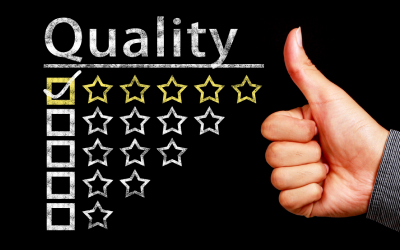Reaching decision-makers at K-12 institutions is crucial for companies aiming to provide products or services that enhance education. However, capturing the attention and interest of these decision-makers can be challenging. In this blog post, we will explore three effective strategies that companies can employ to successfully reach decision-makers at K-12 institutions: tailoring messaging to documented initiatives, personalizing messaging to school and district characteristics, and focusing on specific customer segments.
Tailor Messaging to Documented Initiatives at the State and District Level
To establish a meaningful connection with decision-makers, it is important to align your messaging with the existing education initiatives at the state and district level. By thoroughly researching and understanding these initiatives, companies can craft messaging that addresses specific needs or challenges faced by decision-makers.
For instance, if a state has prioritized STEM education, a company offering innovative STEM resources and programs can tailor their messaging to emphasize how their offerings align with the state’s initiative. They can highlight how their products engage students in hands-on, inquiry-based learning experiences, fostering critical thinking and problem-solving skills. By directly addressing the state’s goals, the company demonstrates its commitment to supporting educational objectives.
Personalize Messaging to School and District Characteristics
Every school and district is unique, with varying student demographics, socioeconomic factors, and educational challenges. To effectively reach decision-makers, it is essential to personalize messaging to their specific characteristics.
For example, if a company offers solutions that address the needs of low socioeconomic students, they can personalize their messaging to highlight how their products can bridge the opportunity gap and provide equitable access to high-quality education. They can showcase case studies or testimonials from similar schools or districts that have benefited from their solutions, highlighting the positive impact on students’ academic achievement and engagement.
Focus on Specific Customer Segments
While targeting decision-makers at K-12 institutions, it can be advantageous to focus on specific customer segments, such as customers in the same state or of a similar type (e.g., public vs. private schools).
For instance, a company may choose to concentrate their efforts on a specific state by attending relevant educational conferences, participating in state-level associations, or collaborating with local education agencies. By building a reputation within that specific customer segment, the company can develop strong relationships with decision-makers and position themselves as trusted partners.
Moreover, by understanding the unique challenges faced by public or private schools, companies can tailor their messaging accordingly. For public schools, they may emphasize cost-effectiveness and scalability, while for private schools, they may highlight personalized approaches and flexibility.
Conclusion
Reaching decision-makers at K-12 institutions requires a targeted and customized approach. By tailoring messaging to documented initiatives, companies can align themselves with the educational goals set by states and districts. Additionally, personalizing messaging to school and district characteristics demonstrates a deep understanding of their specific needs and challenges.
Furthermore, focusing on specific customer segments allows companies to build relationships and establish themselves as trusted partners within those segments. By employing these strategies, companies can effectively reach decision-makers at K-12 institutions and showcase the value of their products or services.
Remember, building long-term relationships and ongoing communication are crucial in maintaining partnerships with decision-makers. Companies should actively seek feedback, provide ongoing support, and demonstrate the positive outcomes their products or services can achieve in order to establish lasting collaborations with K-12 institutions.




